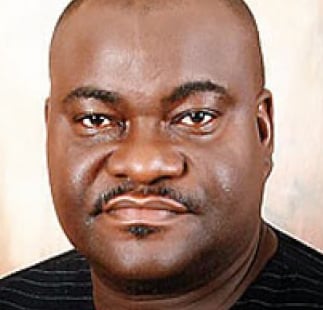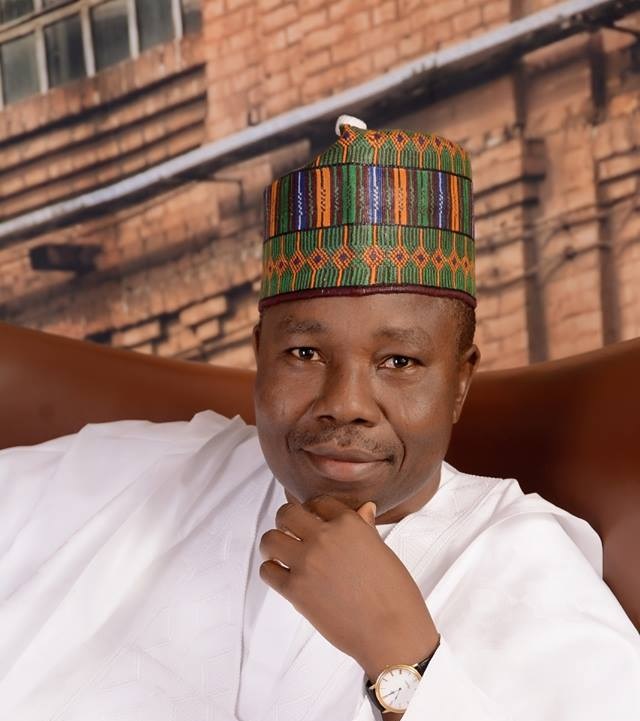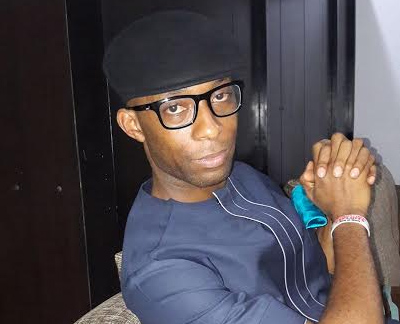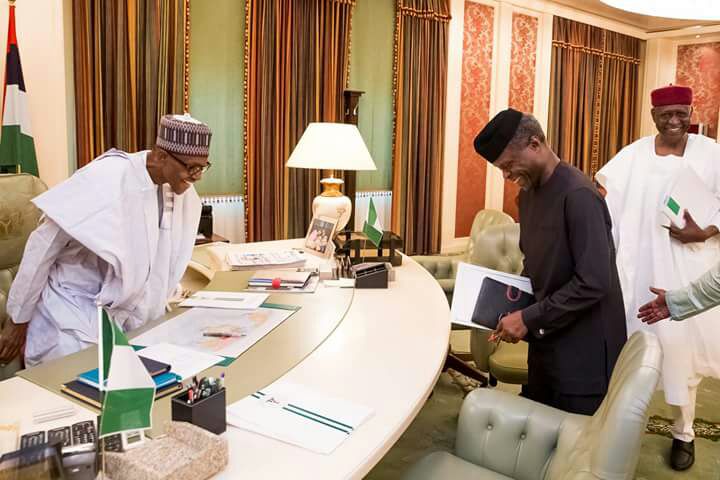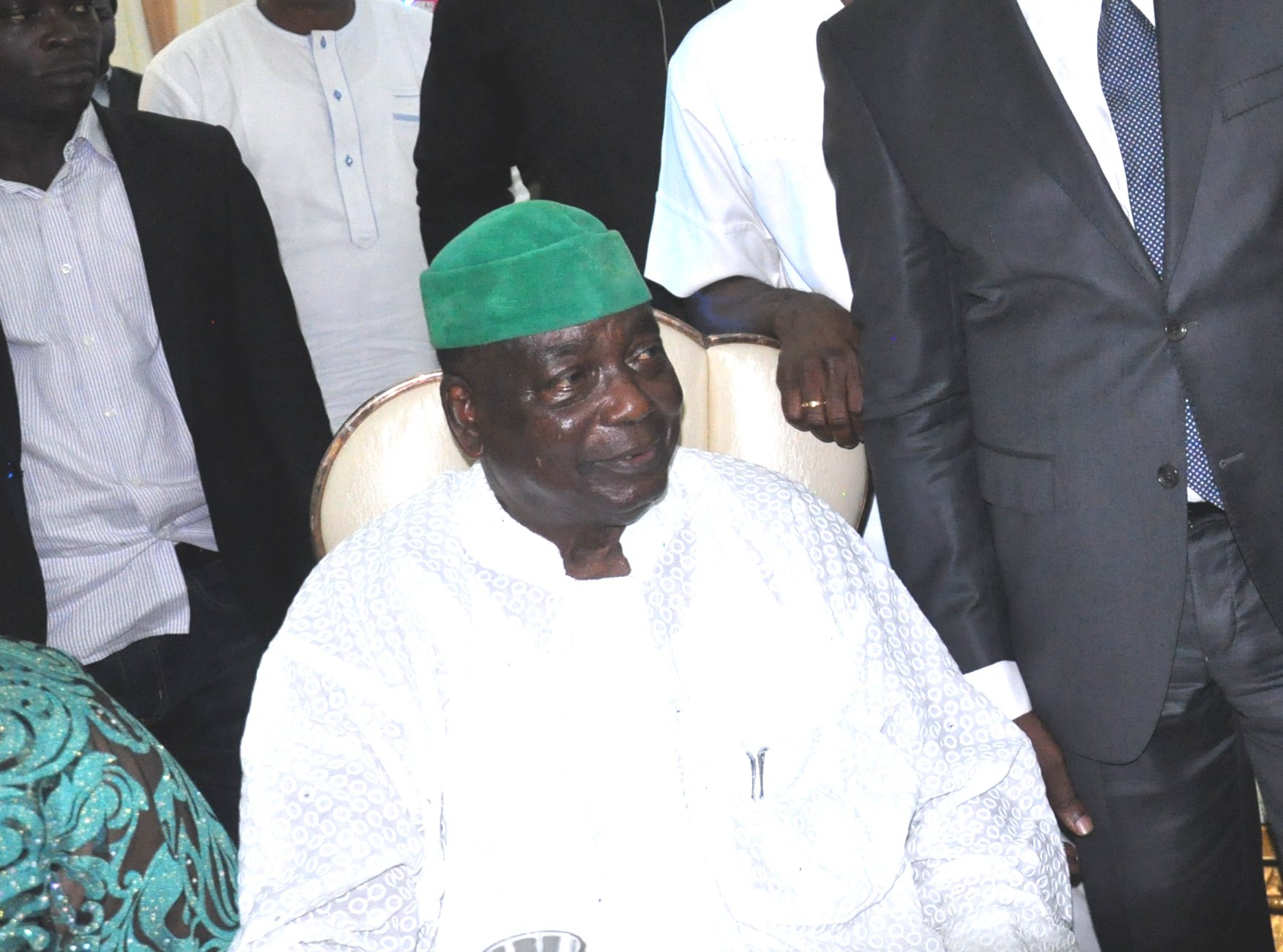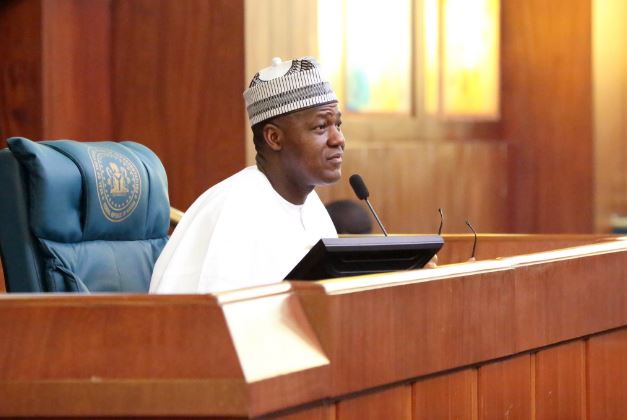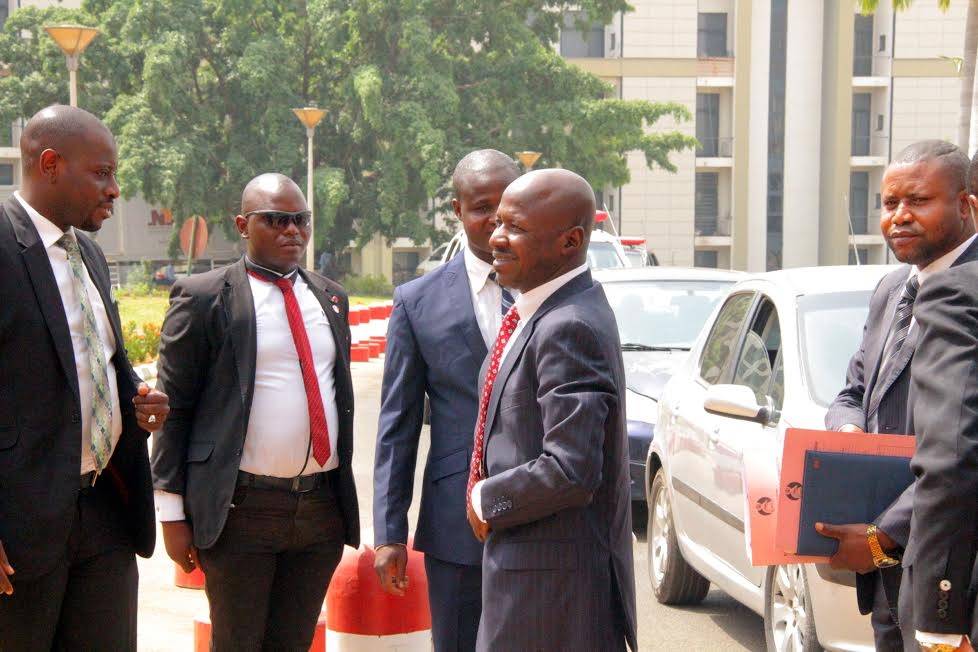As phone call after phone call woke me up in the early hours of March 6, 2017, my gaze was glued to my travelling bag on the left side of the foot of my bed. The bag had been lying there, packed, since the evening of Thursday, March 2, 2017.
It was an unending relay of calls from friends, colleagues, political associates, even family members. Some were inquiries, some were confirmations, some were outright exclamations, yet some were lamentations.
My bosom friend, Adinoyi-OjoOnukaba and I had spoken early that Thursday, and discussed the possibility of going to Abeokuta to attend ceremonies commemorating the 80th Birthday of former President OlusegunObasanjo.We both served in the administration of the former helmsman and shared various levels of relationships with him.
Travelling together to places and events: formal, semi-formal, political, social, across the world had been a dominant feature of our relationship over the years. Indeed, Onukaba and I had both just returned from Makurdi, Benue State, Monday, February 27, 2017, after attending a string of events commemorating the ascension of a mutual friend of ours, higher up the rungs of the public service. And we rode in the same car. TivlumunNyitse my longstanding friend who is also a journalist, and Emmanuel Manger, the Benue State Commissioner for Works, were among our hosts.
Advertisement
Baba, as most of us Obasanjo protégés refer to the old man, would be delighted to see us, Onukaba and I reasoned. So we agreed to harmonise our travel plans so we could both go as our usual “tag team”, to the event.
Coming out of sleep Friday, March 3, however, I felt some pain on the sole of my left foot, as I stepped out of bed. I limped about for a while, hoping the pain will subside so I get some locomotional equilibrium. It didn’t seem to get better and I had to be seen by a pharmacist friend who prescribed PrimpexCortrimozole tablets and NCP cream, to manage the situation.
I quickly apprised Onukaba of my situation. I told him I will be utterly miserable and dysfunctional in the anticipated behemoth the Abeokuta function was most likely going to be. I told him that the way I was, I would not be able to wear smart, slip-on shoes and will be limping around in pain in that mass of human traffic, answering questions from friends. I imagine he was not happy we wouldn’t be in each other’s’ company on the trip. But he simply told me: “I understand. I will try to make it…”
Advertisement
By his itinerary which we discussed the Thursday before, he was to attend a meeting in Lokoja, Saturday, March 4, 2017 disengage therefrom, begin his road trip to Abeokuta, and pass the night on the way, so as to be in Abeokuta early enough on Sunday, March 5.
Thoughts of him kept tugging at my mind in the evening of Sunday, March 5. We hadn’t spoken in nearly two days which was most unusual. I was keen to know how his trip went, so I called his two lines repeatedly between 7:37 pm and 7:40 pm. The calls never connected. I called his wife, Memunat’s line as well. I excused it all to the perennially erratic telecommunications network which has come to be a part of our daily living.
Much as one call after another, in the early hours of Monday, March 6, repeatedly called my attention to facebook posts, tweets and headlines scrolling on the newsbar of several television stations, I could not bring myself to piece together the confounding puzzle.
I called Onukaba’s line, for some reason at 9:32 am that Monday, and somebody took the call. It dropped after 11 seconds. I remained unyielding and called again at 9:33 am, virtually barging through, this time around. I introduced myself and wanted to know who was at the other end. He introduced himself. He was a familiar person, a kinsman of Onukaba. He then narrated the tragic incident in a five minute conversation which seemed like eternity.
Advertisement
I had known Adinoyi-OjoOnukaba by reputation, many years before I eventually met him. He had already earned for himself, a very formidable public image as a daring, fearless, brilliant, versatile and tireless journalist, way back in the early 80s, before some of us formally joined the profession.
We met in December 1998 on the Publicity Team of the Obasanjo Campaign Organisation, immediately he returned from his decade-long stint in the United States and the United Nations system. We hit it off since that first meeting and we remained what soccer aficionados will refer to as “five and six”, in reference to the on-field inseparability of the central defence pair of a football squad.
Onukaba joined a team of some of the brightest and finest minds in the Nigerian media, who were working on the Obasanjo Project. Very ably led by the highly cerebral, experienced and urbane Chief OnyemaUgochukwu, the team included Chris Mammah, Farouk Omar Ibrahim, SegunAyobolu, the late Femi Olatunde, EmekaNwosu, Louis Okoroma and I.
From that list of media professionals who drove and shaped public discourse on the Obasanjo agenda, Mammah and Onukaba were the very first to be appointed into the new administration. Vice President AtikuAbubakar who had a subsisting relationship with both men, which pre-dated the Obasanjo Presidential Project, wasted no time in naming Mammah and Onukaba his aides on Special Duties and Media, respectively.
Advertisement
It is to their credit that they unselfishly pestered and harassed the Vice President, to ensure accommodation for other members of the media team as deserving reward for their selflessness on the project. They created as much access as they could, to ensure we were not frozen out in the new scheme.
Once I read up the synopsis of his doctoral thesis in performance studies which focused on masquerade performances in Ebiraland, I nicknamed him “Masquerade”, an alias which stuck till his untimely end, among our friends. I argued that he had to be a masquerade himself to have been able to undertake such a seminal work!
Advertisement
The friendship between Onukaba and I bloomed and blossomed. We criss-crossed the residences and offices of our principals together, because of the relationships we savoured with them. We could begin our day together attending the Christian morning devotion introduced by Obasanjo upon his occupation of the Presidential Villa as early as 6:30 am; accompany the President to play his favourite game of squash; have breakfast with him and round up our day at the dinner table of Vice President AtikuAbubakar!
Onukaba’s first stint as presidential aide was very brief. He was soon appointed Managing Director of the Daily Times of Nigeria Plc, about August 1999. He thus became the third doctorate degree holder to head the media conglomerate, after Dr. Patrick Dele Cole and Dr.YemiOgunbiyi.
Advertisement
Despite the occupationally-inspired geographical separation, we remained best of friends. October 19, 2002, Onukaba invited me to Benin City, amongst select friends, to take Rachael AkiomuadoOgirri, for a wife. It was a quiet ceremony, since Onukaba was just emerging from a not too successful union, consummated in 1999.
Onukaba returned to The Presidency June 2003, following his appointment by Vice President AtikuAbubakar, as Senior Special Assistant on Media, subsequent upon the inauguration of the Obasanjo-Atiku ticket for a second term. I was also re-appointed by President Obasanjo into the President’s Secretariat, to my old schedule, the Special Duties brief.
Advertisement
We had become brothers by this time and we regularly discussed how the Kogi State presence in the Obasanjo administration, could be positively leveraged for the benefit of our state and our people.
We co-authored memos and correspondences to the President on sundry issues: socio-economic development; arts and culture (both of us being creative writers and culture activists); Kogi affairs and politics, and more. Way back July 16, 2014, Onukaba and I jointly wrote and signed a memo to President Obasanjo, recommending select deserving writers, scholars, journalist and activists, who had excelled in their professions, done Nigeria proud at home and abroad, and qualified to be conferred with national honours.
Top on that list was Prof. Chinua Achebe, who we recommended as eminently deserving of an upgrade from the Officer of the Order of the Federal Republic, OFR, bestowed on him in 1979, to that of the Commander of the Order of the Federal Republic, CFR, to bring him at par with Prof. Wole Soyinka.
Obasanjo approved our recommendation and adopted three other names, notably: AlhajiAladeOdunewu, Chief SegunOlusola and Mrs. Mabel Segun.
Onukaba and I visited Obasanjo one of these evenings like we usually did, to say hello to him, totally oblivious of the fact that Achebe had declined the honour and sent a scathing five-paragraph rejection letter, to the President. If encountering the man in that fit of anger was not bad enough, Onukaba’s attempt to make light of the situation by telling Baba that we were his children and we deserved to have dinner with him, lifted the lid of his simmering rage. He chased us out and we both fled with our tails between our legs!
Yet, Onukaba was Obasanjo’s very good son. The typically witty old man would serenade Onukaba with his oriki on a good day. “Ojoken’keti’ele…. Ojo o siniile, omoadie da gba,’ a Yoruba praise song for Ojo, the young trouble-maker.
That encounter with Obasanjo on the Achebe issue, however, did not dampen our continued identification with and support for our primary constituency, the clan of writers, journalists, artists and all that. It was no surprise that some of the earliest calls I received bemoaningOnukaba’s untimely exit, came from literary luminaries like Prof. Femi Osofisan (Onukaba’s teacher at the University of Ibadan, and professional mentor); Prof. OluObafemi (my own teacher at the University of Ilorin) and the much younger Prof. SunnieOdodo (my schoolmate in the University of Ilorin).
Onukaba and I were their regular “hosts-in-chief” whenever they visited Abuja for conferences, lectures, meetings and so on. We equally usually co-hosted Onukaba’s journalist “twin”, and co-author of Born to Run, Dele Olojede; Prof. GbengaAyeni of the East Connecticut State University; Dr.NdukaOtiono who teaches in Edmonton, Canada; Steve Shaba the publisher and similar mutualfriends.
My family was his family, his folks were my people. He fondly called my wife, “Mama Tobi” in reference to my youngest child, Tobilola, whose christening he attended early in the life of the Obasanjo administration. And I used to remind him that in Yoruba land, mothers are most usually called by the names of their first children. His friends became my friends and by extension, my own friends became his.
Of course, he was my regular guest in Isanlu my hometown on several social engagements and get-aways from the hustle of politics in the capital.
Saturday, May 3, 2014, my wife and I, joined Onukaba’s many friends, associates and admirers at the interment of his mother, HajiyaAishatuOnukaba, who died at 82.
When I was honoured with the chieftaincy title of Enyi ‘Oha of Ekenobizi, Abia State, April 2004, Vice President AtikuAbubakar didn’t prevaricate before nominating Onukaba to stand in for him at the event.
About a year later, in April 2005, we lost Onukaba’s mother-in-law, Mrs. Anna EbikereOgirri in a road crash between Okene and Lokoja, en-route Abuja and it was my turn to join our friends to the funeral in Esanland in Edo State.
In Onukaba’s 50thbirthday tribute to me in 2015, perhaps the best gift I received from any friend on that milestone, he recounted just how gratified he felt when I was conferred with the title of Otunba Baba Eto in EkinrinAdde, Kogi State in 2006. For him, it was a most befitting title given my organisational enthusiasm.
At the height of the animosity between the former President and his Deputy, which culminated in Onukaba’s forced resignation, it was a compassionate AtikuAbubakar who, knowing that Onukabawas bereaved, and was managing a grieving and expectant wife, offered a palliative. He arranged forOnukaba,an all-expenses paid, three month break in the United States. Ebikere, his first daughter was born within that period. And as ever, I made out time to go and seek him out in Maryland. We regularly hung out with Sunday Dare who was heading the Hausa Service of the Voice of America, VOA at the time, and several of our other friends.
Onukaba had his fair dose of rough times, trying to re-learn a country he left to pursue graduate studies in 1989 and which had changed so dramatically when he returned ten years after.
He was a thoroughbred scholar, a seasoned journalist and a consummate theatre artist. He had a fair idea of how things were run in an orderly, sustained and systemic manner in the West. He equally had dreams and visions which I considered somewhat utopian and esoteric in our circumstances, and for which we regularly had friendly disagreements.
He remained eternally confounded by the duplicity, the chicanery, the debauchery, the malfeasance which characterised our day to day existence in the these parts.
Onukaba was as plain as a white sheet of paper. He was simple, straightforward, easy-going, and wouldn’t hurt a fly. He had no time for titular mystifications; he loathed exhibitionism and ostentation and the membrane of his alimentary canal was totally impervious to time wasting affectations. You would never find Onukaba introducing himself with his well earned “Dr.” title. He was that unassuming, that humble. He was just a jolly good fellow who loved his family, respected his friends, had an accommodating heart, loved to read and delighted in writing. He was such a decent person.
He could not understand why, for instance the rift between his bosses in The Presidency, which consumed his job, equally incinerated the opportunity he had to own a house in Abuja. Under the monetization programme of the federal government, he had the right of first refusal over the house he lived in as Presidential aide.
He lost the accommodation in the deathly politicking of that milieu. His experience reminds us of that of the revered Dr. Stanley Macebuh, one of the standard bearers of contemporary journalistic practice in Nigeria, who also served in The Presidency at the same time as Onukaba. Macebuh died March 6, 2010, in Abuja at the age of 67, unable to overcome the trauma of his broad-daylight ejection from the house he lived in, for nearly a decade.
Onukaba lost his beloved wife, Rachael on August 29, 2009, to cerebral malaria. She was just 32 and she left him with two precocious little children, Asuku, aged six at the time and Ebikere, four years old.
Onukaba trudged on without a wife and helpmate for six years. This was until he bowed to persistent pressures from family and friends to take a new wife. He consented and sometime mid-2015, I joined less than a dozen invited friends of his, to ask the hand of former MemunatAliyu in marriage, in Kaduna. Like he explained, it had to be low-keyed, because it was his third marriage in 16 years, by no fault of his. The union was blessed with a beautiful baby girl, Onyeche, December 25, 2015.
As a journalist, his career spanned a most impressive 35 years, starting with his stint as a cub reporter in the Federal Radio Corporation of Nigeria, FRCN, Lagos, in the course of his mandatory post-graduation one-year National Youth Service Corps, NYSC, between 1982 and 1983. He was subsequently on the pioneer staff of The Guardian, which hit the Nigerian newsstands with a thunderous bang in 1983, redefining the true essence of newspaper journalism in these parts. His editorial prolificity, tirelessness and professionalism, accounted for his rapid rise in the organisation, such that within six years of joining the staff, he was already News Editor of The Guardian on Sunday.
Between studying for his Master of Arts and Doctorate in New York University, he built-up his interest in creative and biographical writing and acquitted himself with his imitable authorial productivity. For the avoidance of doubt, Onukaba authored at least a dozen creative and non-fictional works, in his most eventful writing career, while many more were in progress, before his untimely demise.
He wrote and produced several plays including: A Resting Place, Her Majesty’s Visit, Tower of Burden, Virginity Fee, The New God, Nine Lives andSoomalliya, between 1991 and 1995. They were produced at various times in theatres in the US and Kenya, and have since been staged and published in Nigeria. As recently as 2010, his play, The Killing Swamp, (2009), an imaginative dramatization of the final hours of Ken SaroWiwa, the Nigerian writer and environmental rights activist who was hanged November 10, 1995, made the list of finalists for the 2010 NLNG Nigerian Literature Prize.
Onukaba published the very first and perhaps most authoritative biography on Nigeria’s former President, Olusegun Obasanjo, in 1997. Titled: Olusegun Obasanjo: In the Eyes of Time, it was released by Pine Hill Press Inc, New York. He followed up in 2006 with a biography of his former boss and benefactor, Vice President AtikuAbubakar, titled: Atiku: The Story of AtikuAbubakar. He equally published The Mbuti: A Profile of a Group of Hunter-Gatherers in the Ituri Rain Forest of Congo. More recently, he authored a biography of his late wife, Rachael, which he called Remembering Rachael (2012).
Determined to contribute to the political re-engineering and repositioning of his home-state, he entered the governorship contest first in 2011 and more recently in 2015.
He envisioned a political milieu where candidates were marketed on the strength of their integrity, their track record, their competence and their vision, and not solely on the depth of their pockets.
For many years, he made his services and expertise available as a university teacher, first on a part-time basis at the University of Abuja and more recently, at Baze University.
I have lost a brother, a soul mate, a fellow arts connoisseur, easily one of the closest to me and my family, in nearly 20 years.
Onukaba and I shared so, so much in common, including our love for sports, especially football. We were regularly in each other’s company with other friends at stadia in Abuja, Calabar and Port Harcourt, usually following up on the games of the SuperEagles, my friend and old schoolmate, Dr. Emmanuel Ikpeme of the Nigerian Football Federation, NFF, our traditional host.
We sat together at the FNB Stadium in Johannesburg to watch the first match between Nigeria and Argentina, during the 2010 World Cup in South Africa. Together, we savoured that first ever senior world cup tournament hosted by an African country. We were back in South Africa again in January 2013 for the African Cup of Nations, and criss-crossed Rustenburg and Nelspruit, with friends, supporting Nigeria all the way.
Onukaba was eternally concerned about the welfare and safety of his friends. You could expect rigorous inquisition if you told him you had to travel and it had to be by road. “Why don’t you fly,” he would query. “Abeg drive safely if you have to make it by road. These our roads are not good”.
Tragically, Adinoyi-OjoOnukaba, the great masquerade has become the latest casualty of the needless killing swamp, called Nigerian roads. Roads stripped bare in most parts, they would better bedescribed as earth roads. Roads where the unlikely amalgamation of intra-country marauders and cross-border bandits, have established national dominion, with daring defiance.
Onukaba, painfully joins the long list of luminaries, who were lost to the blood thirsty gluttony of Nigerian roads: Chief Sunday Awoniyi; Dr. Stephen Achema; Lt. Gen Rufus Kupolati; Dr. Festus Iyayi; Barr. Eneojo Ocholi, SAN; Brig-Gen Solomon Giwa-Amu; the list is long and endless.
Take a deserved rest from the stomp ad shove on this side, beloved brother.
Olusunle, journalist, poet and writer, is a member of the Nigeria Guild of Editors, NGE and the Association of Nigerian Authors, ANA.
Views expressed by contributors are strictly personal and not of TheCable.
Add a comment
